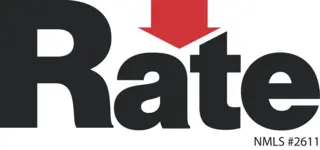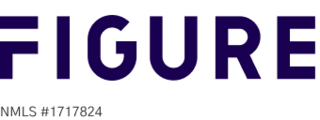4 Best No-Appraisal Home Equity Loan Lenders of February 2026
Note: The sample rates included in the reviews are accurate as of January 30, 2026, and are subject to change at any time.
What do you do if you want to tap your equity without losing your low rate? You go for a home equity loan or a home equity line of credit (HELOC).
For most lending products, you’ll need an appraisal, which adds extra fees to your loan costs. Fortunately, not all lenders require one. No-appraisal HELOCs and home equity loans are alternative ways to determine your home's value and the amount of equity you have, without incurring additional fees.
If you’re looking for a no-appraisal home equity loan or HELOC, these are some of the top lenders you should consider.
What to know about no-appraisal home equity loans:
- Most lenders require an appraisal before they approve a home equity loan or HELOC. However, some lenders will offer home equity loans without an appraisal.
- Some lenders let you waive the appraisal, use an old one, or leverage data-based approaches to determine your home’s value instead.
- Choosing a no-appraisal lender can help speed up the lending process and reduce closing costs.
How we chose our top picks
Money reviewed over 60 home equity products and lenders to ensure our list is as comprehensive as possible. We used publicly available data and interviews with lender representatives to verify its accuracy. We then narrowed the list of lenders offering no-appraisal loans and scored each lender on interest rates, term options, maximum loan amounts, credit score requirements, and loan-to-value thresholds, on a scale of one to five.
Read our full methodology to learn more.
Our top picks for the best no-appraisal home equity loan lenders of February 2026
- Connexus Credit Union: Best Overall
- Figure Lending: Best no-appraisal HELOC
- Rate: Best for Low Interest Rates
- PenFed Credit Union: Best for Smaller Loan Amounts
- Offers the best combination of low rates, flexible terms
- Long draw period (for HELOCs)
- High LTVs allowed
- Several term options to choose from
- Must become a credit union member
- Closing costs range from $175 to $2,000
- Not offered in Maryland, Texas, Hawaii, or Alaska
- Product options:
- HELOCs, home equity loans
- Maximum loan amount:
- Varies by location
- Maximum LTV:
- 90%
- Terms:
- 15-year draw period; 15-year repayment (for HELOCs); 5, 10, and 15-year terms (for home equity loans)
- Interest rates:
- Variable, starting at 4.99% APR introductory rate until Oct. 1 (HELOCs), then 7.94% APR; fixed-rate starting at 7.31% APR (home equity loans)
- Credit score minimum:
- 640
- Properties allowed:
- Single-family homes, two- to four-unit condominiums, owner-occupied duplexes, townhouses
Why we chose it: Connexus Credit Union is our top no-appraisal home equity lender. Not only does it offer both home equity loans and HELOCs for up to 90% of your home’s market value (minus your current mortgage balance), but it also offers low interest rates. You can currently get an introductory rate lock as low as 4.99% APR on a line of credit, valid until October 1, 2026. Its HELOC also offers a longer-than-typical 15-year draw period, giving you even more time to use that home equity if needed.
Read more about Connexus Credit Union’s home equity loans in our review.
- Four loan terms to choose from
- Low, fixed interest rates
- Second homes allowed
- Funding in as little as 5 days
- LTV and max loan amount could be higher
- Requires an origination fee of up to 4.99%
- Not offered in Hawaii, New York, or West Virginia
- Product options:
- HELOCs
- Maximum loan amount:
- $400,000
- Maximum LTV:
- 85%
- Terms:
- 5, 10, 15, and 30-year terms
- Interest rates:
- Fixed, starting at 6.30% APR
- Credit score minimum:
- 640
- Properties allowed:
- Single-family homes, townhouses, planned urban developments (PUDs), most condos, second homes, and duplexes
Why we chose it: Figure has our top-rated no-appraisal HELOC, and it’s no wonder: The all-digital online lender specializes in these products, and it offers some big perks for its borrowers. Interest rates are fixed (a key difference from most HELOCs), there are four loan terms to choose from, and you can receive your funds in as few as five days. You can also use Figure’s HELOCs for second homes — another standout compared to other companies.
- Low, fixed interest rates
- Funding in as few as 5 to 10 days
- No closing costs
- Second homes, investment properties, and rentals allowed
- High credit score requirement
- Short draw periods
- Not offered in New York, Kentucky, West Virginia, Delaware, or Maryland
- Product options:
- HELOCs
- Maximum loan amount:
- $400,000
- Maximum LTV:
- 85%
- Terms:
- two- to five-year draw periods; five, 10, 15 and 30-year repayment periods
- Interest rates:
- Fixed, starting at 6.35% APR
- Credit score minimum:
- 680
- Properties allowed:
- Primary homes, second homes, investment properties, single-family rentals, condos, townhomes
Why we chose it: Among all the no-appraisal lenders we analyzed, Rate (formerly Guaranteed Rate) has some of the lowest possible interest rates around (they’re fixed, too). Rates currently start at just 6.25%, and you can choose between five-, 10-, 15-, and 30-year repayment terms. The lender offers funding in as little as five to 10 days, with no upfront closing costs.
Learn more about Rate in our lender review.
- No appraisal required for loans up to $400,000
- Funding in as few as 15 days
- No closing costs or origination fees
- High credit score requirement
- Requires credit union membership
- Product options:
- HELOCs
- Maximum loan amount:
- $500,000 (over $400,000 requires an appraisal, though)
- Maximum LTV:
- 85%
- Terms:
- 10-year draw period; 20-year repayment period
- Interest rates:
- Starting at 6.625% APR
- Credit score minimum:
- 680
- Properties allowed:
- One to four-unit properties only
Why we chose it: If you don’t need to borrow a ton of cash, you can look to PenFed Credit Union, which requires appraisals on loans above $400,000. The lender offers both fixed- and variable-rate options, and lends up to 85% of your home’s equity. There are also no origination fees, and you can close on your loan in as fast as 15 days.
Learn more about PenFed in our best credit unions of 2025 round-up.
Other no-appraisal home equity loan lenders we considered
Achieve
Achieve offers home equity loans to borrowers with credit scores as low as 600, the lowest required by any lender we considered. In most cases, it uses an automated valuation model, which means you won’t need an in-person appraisal. Achieve has a maximum loan amount of $150,000 for debt consolidation and $300,000 for home improvements. Qualified buyers can get financing in as little as 10 days.
Why we didn’t choose it: Published interest rates are higher than those offered by our top picks, and the 5-year draw period is shorter than those of many other companies we considered.
Hometap
Hometap is a home equity sharing company that uses in-person and automated valuation models for its property appraisals. Hometap offers an alternative way to use home equity. Instead of providing a loan, Hometap will invest in your home by “buying” a portion of your home’s future equity in exchange for a lump-sum payment. No monthly payments are required, and you can use the money for any purpose. Hometap is one of our picks for the best home equity sharing companies.
Why we didn’t choose it: Home equity sharing is not a traditional loan product. While you don’t have to worry about making regular payments, you will have to make a balloon payment of the initial investment amount plus a percentage of your home’s increased value when the agreement ends, which could represent a large sum of money.
What you need to know about no-appraisal home equity loans and HELOCs
A home is the most important asset for many homeowners. It's the most common way people build long-term wealth. It can also be an excellent source of cash to help weather a financial storm or improve your current situation.
Tapping into that wealth is an affordable way to borrow money, according to Jon Giles, head of residential lending strategy and support at TD Bank.
"Home equity offers the flexibility to consolidate debt, manage expenses or fund renovations," Giles says. "It's a simple way for homeowners to leverage a significant asset to work towards their long-term goals."
If you want to tap your home equity without the hassle and headache of an appraisal, there are certainly options out there. Before you apply, make sure you understand how these loan products work.
What is a no-appraisal home equity loan or HELOC?
Most home equity loans and HELOCs require an in-person appraisal. That’s because how much you can borrow from these loans — and how risky they are to a lender — depends, in part, on your home equity. Lenders want to know just how much skin you’ll have in the game, and thus, how likely you are to continue making your payments. The best way to determine that is by having an accurate valuation of your home.
That’s what appraisals do. An appraiser will visit the property, assess its current condition, and look at local housing market data to determine its market value. Once a lender knows this value, they can subtract your current mortgage balance to determine your total home equity.
Not requiring this step can save time and money. However, be aware that the lender will still need to assign a value to your home, even on no-appraisal loans. We’ll go into more detail on how they might do this below.
How does a no-appraisal home equity loan or HELOC work?
A lender must determine your home's value before approving a home equity loan or HELOC. While you might skip the full in-person appraisal, there are other ways to determine your home’s value.
Most commonly, lenders use what’s called an automated valuation model. This is a type of computer algorithm that assigns a property value based on external data points such as size, age, number of bedrooms, and similar homes in the area. Zillow’s “Zestimate” feature, which gives you an estimated price for virtually any address in the U.S., is a good example of an AVM.
Other lenders might use desktop appraisals, which use a combination of property data records and other computer-accessible data to evaluate your house, or they may let you use a previous appraisal if it wasn’t made too far in the past.
Once your home’s value is determined, the lender can calculate how much equity you have and how much you can borrow, and it can start underwriting your loan. When that step is complete, you’ll close on the loan by signing your paperwork and paying any closing costs that the lender requires.
How to choose a no-appraisal home equity loan lender
Whether a lender requires an in-person appraisal is just one factor to consider when evaluating where to get your home equity loan or HELOC. You should consider these other factors as well:
- Their qualifying requirements, including credit scores, loan-to-value ratios, and equity minimums
- The maximum loan amount you can borrow
- What properties qualify for their HELOC or home equity loan
- Any fees the lender charges
- Their interest rates and term options
- Customer reviews and ratings
You also want to look up a company’s profile on the Better Business Bureau. If they have a high number of complaints or a low rating, it may indicate that the company isn’t great to work with.
Pros and cons of no-appraisal home equity loans and HELOCs
Pros | Cons |
Faster loan processing, as it removes a time-consuming step | Fewer lender options to choose from |
Lower upfront costs, since appraisals usually add $300 to $400 to your closing fees | May mean you can borrow less (if a full appraisal would confirm your home has gained value, for instance) |
Less headache and hassle all around | May come with higher interest rates or lower loan amounts, as they can be considered riskier for lenders |
Alternatives to no-appraisal home equity loans and HELOCs
The main alternative to a no-appraisal home equity lender is one that requires a full appraisal. This can extend the time required to process your loan and incur additional costs. Appraisal fees vary by location and property size but typically range from $300 to $400, according to home services platform Angi.
If you don’t want to go through the appraisal process, other options for funding include:
Cash-out refinance
This replaces your current mortgage with a larger one, letting you access the difference in cash. Keep in mind that this will involve replacing your existing mortgage term with a new one, which could be beneficial or detrimental, depending on market conditions. You’ll begin again at Day 1 of the repayment process for the term you’ve elected, often 15, 20, or 30 years.
Reverse mortgage
Designed for senior homeowners, a reverse mortgage allows you to tap into your home equity without having to make monthly payments. You can receive regular payments or take the loan in a lump sum. You don’t repay the balance until you permanently move out, sell the house, or pass away.
Personal loan or credit card
Instead of tapping your home equity, you could use a personal loan or credit card if you need money in a pinch. Take note, though: You will typically pay much higher interest rates for these products than you will for home equity loans, HELOCs, and other mortgages.
If you're unsure which option makes the most sense, don't hesitate to consult a mortgage professional or financial advisor. They can point in the direction that’s best for your budget and goals.
Latest home equity news
Home equity gains slowed down over the past few months as home prices stabilized and even fell in some markets. In some cases, homeowners in cities where prices have declined year over year have lost some of the wealth they built up during the pandemic.
For many homeowners, however, their level of tappable home equity remains near a record high. This can be a source of cash that can be accessed to pay off higher-interest debt, cover medical expenses or make major home repairs.
The most common way to access this equity over the past year has been through home equity lines of credit and home equity loans, although cash-out refinancing has seen increased interest. However, for homeowners who own their property outright or have very low mortgage rates, equity products allow them to access funds.
No-Appraisal Home Equity Loan FAQs
Can you get a home equity loan without an appraisal?
Can I get a HELOC without an appraisal?
Who pays for the appraisal on a home equity loan?
Who is the best person to talk to about a home equity loan?
Methodology
We evaluated dozens of banks, credit unions and online home equity lenders nationwide. We gathered data on product terms, qualifying requirements, interest rates, availability, and other perks to identify the best options. We scored lenders on a one-to-five scale based on five categories: interest rates (30%), loan terms (20%), credit score minimums (20%), loan-to-value ratio (15%) and maximum loan amounts (15%).
- We considered companies that offered competitive interest rates, as these are a primary factor in the cost of financing a home purchase.
- Companies with longer payback periods and, for HELOCs, longer draw periods received higher scores.
- We prioritized companies with lower credit score requirements because they make the products available to a broader group of borrowers.
- Higher scores were assigned to companies with higher loan-to-value ratios, which helps expand the pool of borrowers eligible for the products offered.
- We assigned higher scores to companies that offered larger loan amounts than their competitors.
Summary of our top picks for the 4 best no-appraisal home equity loan lenders of February 2026
- Connexus Credit Union: Best Overall
- Figure Lending: Best HELOC
- Rate: Best for Low Interest Rate
- PenFed Credit Union: Best for Smaller Loan Amounts











